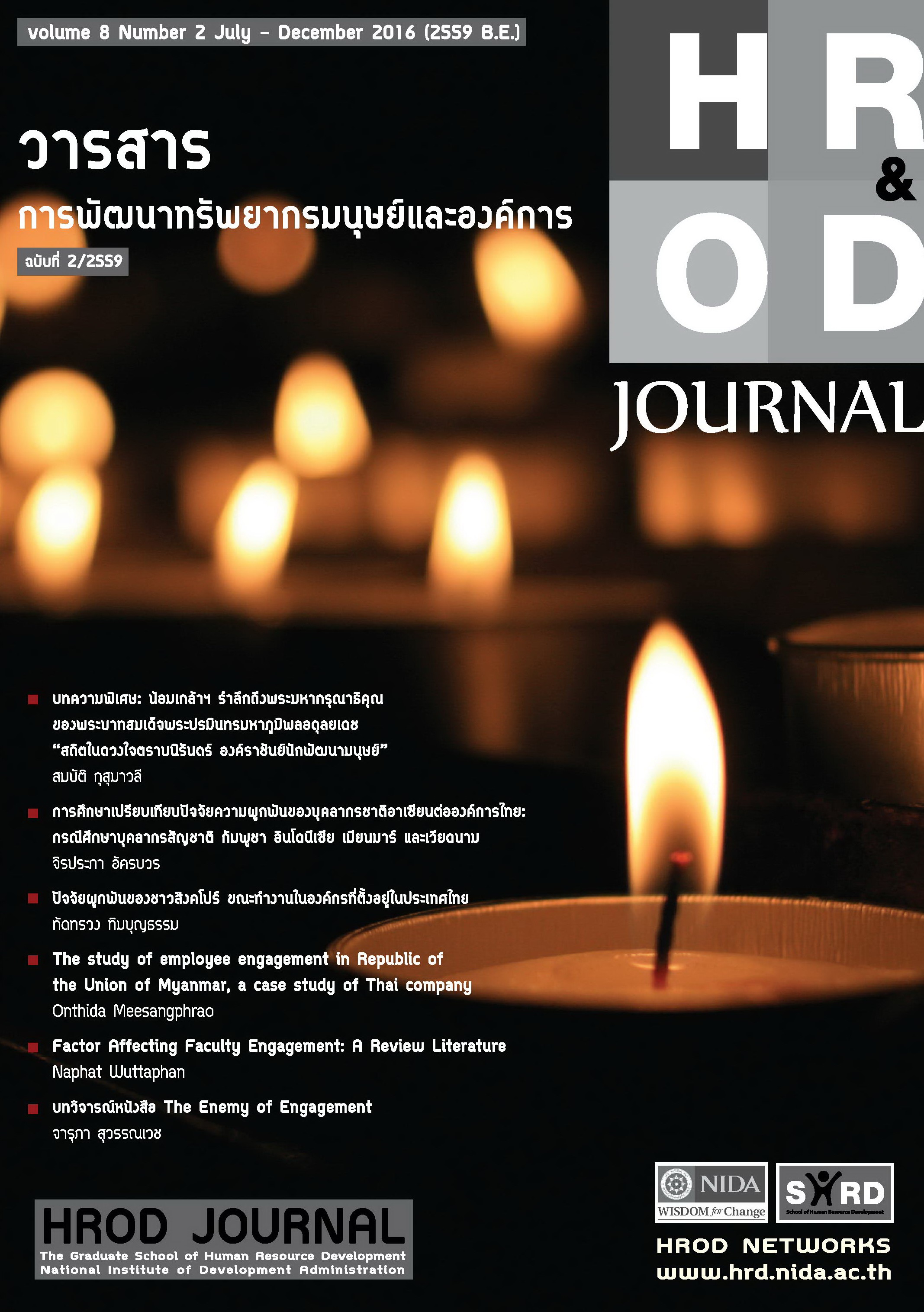Comparative Study of ASEAN Employee Engagement Factors in Thai Organizations: Case Studies of CIMV (Cambodian, Indonesian, Myanmar and Vietnamese)
Main Article Content
Abstract
Due to Cambodia, Indonesia, Myanmar and Vietnam (CIMV) countries becoming the center of foreign investment in ASEAN region and also AEC having drawn more labor movement in these countries, Thailand is the one of many countries in this region that has been using the workforces from CIMV. Understanding the needs of these workforces and being able to enhance the employee engagement of CIMV workforces, an empirical study is needed. In 2015, the students from the Human Resource and Organization Development Program teamed up to study the factors impacting employee engagement in each country in CIMV. They all agreed to adopt the Emo-meter, the employee engagement survey developed by Chiraprapha Akaraborworn et al. (2015). The sampling groups of this study came from the employees who were working with the Thai-owned organizations operating in CIMV countries. The demographic of the samplings are operator level, generation Y (Age 24-38), single status, no dependent (except Indonesia), Bachelor Degree Education, 1-3 working experience and sufficient economic status & having some saving money (except Vietnam employees). The findings are the level of Emo-meter was quite high in Indonesian, Myanmar, and Vietnamese employees, but medium Emo-meter level in Cambodian employees. The Perceived of Organization Support (POS) was about medium level in all four countries which can be interpreted that the Thai organizations could not support facilities for the CIMV employees as they expected. Cambodian and Indonesian employees have Job Security (JS) as a key driver for employee engagement while Myanmar and Vietnamese employees have Work Life Balance (WB) as a key driver for employee engagement. It is interesting that Compensation (CO) factor is not a driver for employee engagement of these sampling groups.
Article Details
1) The content of article in HROD journal is the author’s wholly responsibility to research, analyze, summarize, compile, and reference data. The editorial department will not be responsible in anyway.
2) The submitted articles in HROD journal must be unpublished before and must not be currently under consideration for publication elsewhere. If it is detected for its repetition, the author must be responsible for infringement of copyright.
3) Authors will be asked to transfer copyright of the article to the Publisher. The article is prohibited to reproduce all or part of the text, unless allowed.


